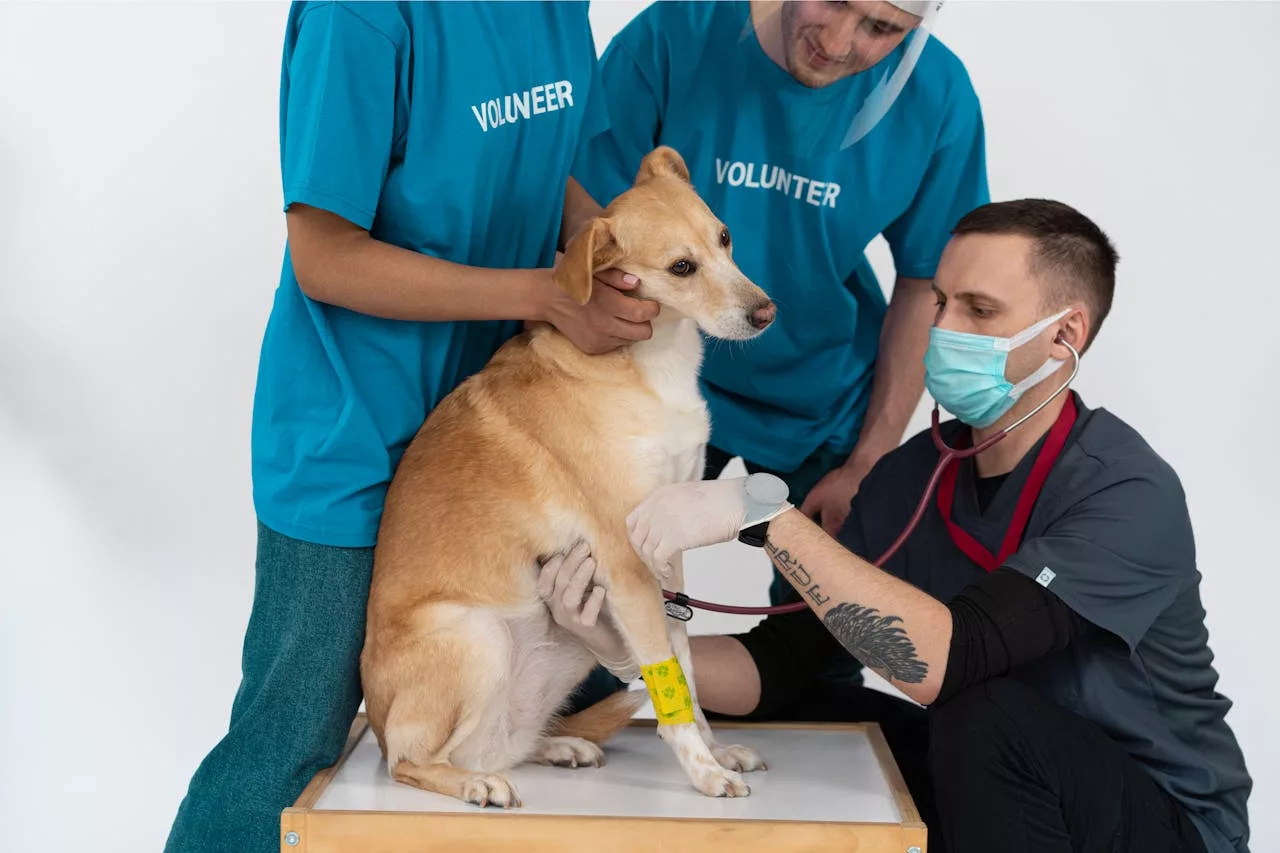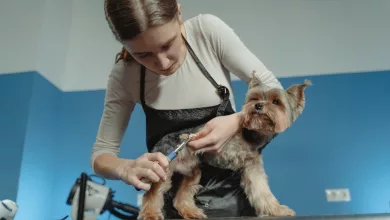When our pets start coughing, it can be a bit alarming. Is it something harmless, like a tickle in the throat, or is it a sign of something more serious? Coughing in pets can have various causes, from mild to severe, and understanding when to act and what steps to take can make all the difference. Here’s a guide on what you need to know about pet coughing and what actions to consider.
1. Understanding Pet Coughing: What Does It Mean?
Before diving into the causes, let’s understand what coughing means in pets. Coughing is a reflex that helps clear the respiratory tract. It can vary in sound, frequency, and severity, all of which provide clues about what might be happening.
- Dry vs. Wet Cough: A dry cough may sound like a honking noise, often linked to tracheal issues or kennel cough in dogs. A wet or productive cough usually suggests fluid in the lungs, potentially due to infections or heart problems.
- Frequency and Duration: Occasional coughs are usually less concerning, but a persistent or worsening cough is something to investigate further.
2. Common Causes of Coughing in Pets
Here’s a breakdown of possible causes, from minor irritations to more serious health issues.
a. Kennel Cough
One of the most common causes of coughing in dogs, kennel cough, is a contagious respiratory disease caused by various bacteria and viruses. Symptoms include a loud, honking cough and possible sneezing.
- Who’s at Risk? Pets exposed to other animals, like those in boarding facilities, dog parks, or training classes, are more likely to catch kennel cough.
- What to Do: Mild cases often clear up on their own. However, if coughing persists for more than a week or is accompanied by a lack of appetite or fever, consult your vet.
b. Allergies or Irritants
Just like humans, pets can have allergies that cause coughing. Common irritants include:
- Dust, smoke, and strong scents (like cleaning products or perfumes)
- Seasonal allergens, such as pollen
What to Do: If you suspect allergies, try to identify and remove the irritant. Switching to pet-friendly cleaning products and maintaining a dust-free home can help.
c. Heart Disease
Heart disease, especially in older pets, can lead to a persistent cough due to fluid buildup in the lungs or pressure on the respiratory tract.
- Signs to Watch For: Coughing is often worse at night or after exercise. Look for other symptoms like fatigue, rapid breathing, or decreased appetite.
- What to Do: Heart disease requires veterinary care, so seek advice if your pet shows these signs.
d. Infections (Pneumonia, Fungal Infections)
Pneumonia and other infections can cause a productive, wet cough. Other signs include fever, difficulty breathing, and lethargy.
- What to Do: An infection is a serious issue that requires prompt treatment. Visit your vet for a diagnosis and potential treatment, such as antibiotics or antifungal medications.
e. Collapsed Trachea
Common in small dog breeds, tracheal collapse is a condition where the windpipe becomes weakened, causing a harsh, honking cough.
- Signs to Watch For: The cough often worsens with excitement or activity and may be accompanied by gagging.
- What to Do: While this is manageable with lifestyle changes and sometimes medication, consult your vet for a treatment plan.
f. Parasites
Heartworms and lungworms can infect a pet’s respiratory system, causing coughing, difficulty breathing, and fatigue.
- What to Do: Preventative medications can reduce the risk of heartworm. If you suspect parasites, have your vet conduct a screening test to determine if treatment is needed.
3. When to See a Veterinarian
While some mild coughing may resolve on its own, it’s crucial to know when professional help is necessary. Here are signs that a vet visit is needed:
- Persistent coughing lasting more than a week
- Coughing accompanied by vomiting, loss of appetite, or lethargy
- Difficulty breathing or wheezing
- Coughing blood or a discharge from the mouth or nose
These signs may indicate a serious health issue that requires prompt attention.
4. How to Keep Your Pet Comfortable at Home
While you’re monitoring the cough or waiting for a vet appointment, there are steps you can take to keep your pet comfortable:
- Create a Calm Environment: Avoid activities that could make your pet excited, as excitement can exacerbate coughing.
- Humidify the Air: Use a humidifier, especially during dry seasons, to help soothe your pet’s airways.
- Ensure Hydration: Make sure your pet has access to fresh water, as hydration can aid in alleviating throat irritation.
- Limit Irritants: Reduce exposure to smoke, dust, and other potential allergens. Using pet-safe cleaning products and vacuuming regularly can help.
5. Prevention Tips: Keep Coughs at Bay
Taking preventive measures can help reduce the likelihood of coughing and other respiratory issues.
- Vaccinations: Keep your pet’s vaccinations, including kennel cough, up to date to protect against common respiratory infections.
- Regular Vet Checkups: Routine checkups can catch early signs of health problems, such as heart disease or parasites, before they become serious.
- Exercise and Diet: A healthy diet and regular exercise can strengthen your pet’s immune system and cardiovascular health, making them less susceptible to respiratory issues.
6. Conclusion: Trust Your Instincts
When it comes to your pet’s health, trust your instincts. If you feel that something’s not right, don’t hesitate to consult your vet. A quick check-up can provide peace of mind or, if necessary, catch a problem early. Remember, a healthy and happy pet is a pet that feels loved and cared for!
By staying informed and attentive, you can help your furry friend live a healthier, happier life.




